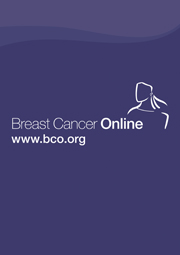FBCG – Contact Details
Country
Finland
Chair
Dr R. Huovinen, Turku University Hospital, Department of Oncology, P.O. Box 52, FIN-20521 TURKU, FINLAND. Tel: +358 2 313 0000 Fax: +358 2 313 2809 Email: [email protected]
Other Subgroup Head/Member: (Please Specify)
Vice Chair, Trial Coordinator:
Professor H. Joensuu, Helsinki University Central Hospital, Department of Oncology, Haartmaninkatu 4, P.O. Box 180, FIN-00029 HELSINKI, FINLAND. Tel: +358 9 4717 3200 Email: [email protected]
FBCG Treasurer, BIG Voting Representative:
Adjunct Professor M. Tanner, Tampere University Hospital, Department of Oncology, P.O. Box 2000, FIN-33521 TAMPERE, FINLAND. Tel: +358 3 3116 7640 Fax: +358 3215 8923 Email: [email protected]
Trial Coordinator:
Adjunct Professor T. Saarto, Helsinki University Central Hospital, Department of Oncology, Haartmaninkatu 4, P.O. Box 180, FIN-00029 HELSINKI, FINLAND. Tel: +358 39 4711 Email: [email protected]
Secretary:
Dr P. Auvinen, Kuopio University Hospital, Department of Oncology, P.O. Box 1777, FIN – 70211, KUOPIO, FINLAND. Tel: +358 17 173 311 Email: [email protected]
FBCG – Study Details
Title
Comparison of vinorelbine versus docetaxel, and trastuzumab versus no trastuzumab as adjuvant treatments of early breast cancer.
FinHer study
Coordinator(s)
H. Joensuu, Helsinki University Central Hospital, Department of Oncology, Haartmaninkatu 4, P.O. Box 180, FIN-00029 HELSINKI, FINLAND. Tel: +358 9 4717 3200
Summary
- Opened in November 2000
- Target accrual: 1010 patients
Objectives
- To compare tolerability, safety and efficacy of single-agent vinorelbine and single-agent docetaxel as adjuvant treatments of early breast cancer with moderate to high risk for cancer recurrence.
- To assess tolerability, safety and efficacy of trastuzumab given concomitantly with vinorelbine or docetaxel as adjuvant treatment of early breast cancer with moderate to high risk for cancer recurrence.
Scheme

Update
- Study closed in September 2003 with 1010 patients (1009 eligible).
- Three-year results have been published (Joensuu H et al., New Engl J Med 2006; 354: 809–820).
Related Publications
Joensuu H et al., New Engl J Med 2006; 354: 809–820.
Topics
- HER2 positive patients
- Taxanes
- Trastuzumab
- Vinorelbine
- Cardiac function
- Anthracyclines
- Innovative schedules
Keywords
Adjuvant treatment, HER-2 positive breast cancer, trastuzumab
***************************************************
Title
Randomized phase III study comparing single-agent docetaxel followed by 5-FU, epirubicin and cyclophosphamide (FEC) to docetaxel plus Xeloda followed by cyclophosphamide, epirubicin and Xeloda (CEX) as adjuvant treatment for early breast cancer.
FinXX Study
Coordinator(s)
H. Joensuu, Helsinki University Central Hospital, Department of Oncology, Haartmaninkatu 4, P.O. Box 180, FIN-00029 HELSINKI, FINLAND. Tel: +358 9 4717 3200
Summary
- Opened in January 2004
- Target accrual: 1500 patients
Objectives
- Primary endpoint: relapse-free survival (RFS) at 5 years.
- Secondary endpoint: safety and overall survival.
Scheme

Update
- Study ongoing, 977 patients accrued by the end of February 2006.
Related Publications
None available
Topics
- Capecitabine
- Taxanes
Keywords
Adjuvant treatment, capecitabine, taxanes
***************************************************
Title
A multicenter phase III open randomised trial of the efficacy of exercise in the prevention of long-term adverse effects of adjuvant treatments and breast cancer recurrences in women with primary breast cancer.
BREX 01-2004 Study
Coordinator(s)
T. Saarto, C. Blomqvist, Helsinki University Central Hospital, Department of Oncology, Haartmaninkatu 4, P.O. Box 180, FIN-00029 HELSINKI, FINLAND. Tel: +358 9 4711
Summary
- Opened in December 2005.
- Target accrual: 600 patients (300 per arm).
- Patients are randomised into exercise intervention or control groups. The exercise intervention consists of both supervised and home training. The control group maintain previous physical activity and exercise habits.
Objectives
- To investigate whether regular exercise after adjuvant treatments of breast cancer could:
(1) prevent osteoporosis (primary outcome)
(2) improve quality of life (primary outcome)
(3) improve weight control, and muscular and cardiovascular fitness (secondary outcome)
(4) reduce the risk of breast cancer recurrence (secondary outcome)
(5) prevent other diseases and reduce all-cause mortality in patients with primary breast cancer (secondary outcome)
Scheme
None available
Update
- Study ongoing
Related Publications
None available
Topics
- Bone mineral density
Keywords
Intervention, prevention, primary breast cancer, osteoporosis


